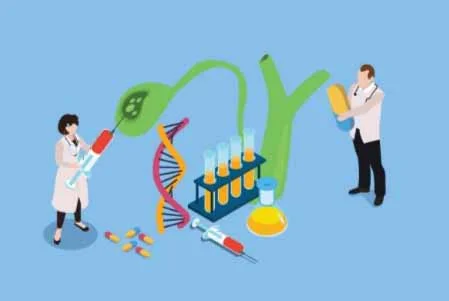How Biotechnology is Transforming Medicine
In today’s fast-paced world, advancements in biotechnology have been at the forefront of the healthcare industry, transforming the way we approach medical treatments and research. This blog post will delve into the ways that biotechnology is revolutionizing healthcare, highlighting its impact on various aspects of medicine.
The Role of Biotechnology in Drug Development
One of the most significant contributions of biotechnology to healthcare is in the realm of drug development. Traditional pharmaceutical research often relied on serendipity and trial and error, resulting in a slow and inefficient process. However, biotechnology has changed the game by allowing a more targeted approach.
With the advent of biotechnology, scientists can now harness the power of genetic engineering to create precise and customized treatments. By manipulating genes, scientists can produce therapeutic proteins, enzymes, and antibodies that can effectively target specific diseases and conditions. This level of precision has led to the development of highly effective drugs with fewer adverse effects.
For example, biotechnology has paved the way for revolutionary personalized medicine, where treatments are tailored to individual patients based on their genetic makeup. This approach has proven particularly effective in the field of oncology, allowing doctors to choose therapies that are more likely to be successful and avoiding unnecessary treatment.
Biotechnology and Diagnostics
Another area in which biotechnology has had a significant impact is diagnostics. The traditional methods of diagnosing diseases often relied on invasive procedures and lengthy processes. Biotechnology has enabled the development of faster, more accurate, and less invasive diagnostic tools.
Advancements in biotechnology have led to the creation of medical devices capable of analyzing genetic material, proteins, and other biomarkers to detect diseases at an earlier stage. These devices not only provide quicker results but also enhance the accuracy of diagnoses, enabling treatment to begin sooner and potentially save lives.
Furthermore, biotechnology has facilitated the development of point-of-care testing, where diagnostic tests can be performed on-site, allowing for immediate results. This is particularly beneficial in underserved areas where access to healthcare is limited, as it reduces the need for lengthy laboratory processes and allows for faster decision-making by healthcare professionals.
Biotechnology and Regenerative Medicine
Regenerative medicine is an emerging field that aims to restore the structure and function of damaged tissues and organs. Biotechnology plays a crucial role in advancing regenerative medicine by providing innovative tools and techniques.
Through biotechnology, scientists can manipulate stem cells to differentiate into specific cell types, allowing for the repair and regeneration of tissues and organs. This breakthrough has the potential to revolutionize the treatment of various conditions, including organ failure, neurodegenerative disorders, and spinal cord injuries.
Furthermore, biotechnology has led to the development of three-dimensional printing of tissues and organs. By combining biologically compatible materials with living cells, scientists can create functional tissues and organs that can be used for transplantation, reducing the lengthy wait lists for organ donors and saving lives.
Closing Thoughts
As technology continues to advance, biotechnology will play an increasingly integral role in revolutionizing healthcare. From drug development to diagnostics and regenerative medicine, the impact of biotechnology is undeniable. By harnessing the power of genetics and engineering, we can expect even more innovative breakthroughs that will transform the way we approach healthcare and improve patient outcomes.
So, join the biotechnology revolution and stay tuned for more exciting advancements in the world of healthcare!

